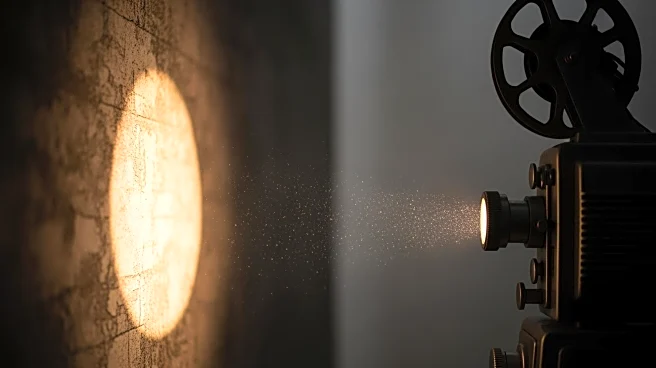What's Happening?
Yorkshire Pianos, the last piano builders in the UK, are advocating for the continued relevance of piano building as a craft. Despite being listed on the Heritage Crafts charity's red list of endangered skills, owner Adam Cox insists that piano building remains vital and relevant. The workshop, located in the Yorkshire Dales, produces the Cavendish piano, entirely built in the UK. Cox emphasizes the importance of passing on the intricate skills required for piano building to younger generations, ensuring the craft's survival. The workshop collaborates with local craftspeople to produce various piano components, highlighting the collaborative nature of the craft.
Why It's Important?
The preservation of piano building as a craft is crucial for maintaining the cultural heritage associated with musical instrument production. As traditional crafts face the risk of extinction, efforts to sustain them are vital for future generations. Piano building not only supports the music industry but also provides employment opportunities for skilled artisans. The craft's survival ensures the continuation of related skills, such as piano tuning and restoration, which are essential for maintaining the quality and sound of pianos used in various music genres.
What's Next?
Yorkshire Pianos plans to innovate and develop new methods to keep the craft relevant and sustainable. By focusing on research and development, the workshop aims to adapt to modern demands while preserving traditional techniques. The firm is exploring ways to attract young talent to the craft, ensuring the knowledge and skills are passed on. As the craft evolves, it may incorporate new technologies or materials, potentially leading to advancements in piano design and production.
Beyond the Headlines
The story of Yorkshire Pianos highlights broader themes of cultural preservation and the challenges faced by traditional crafts in a modern economy. The workshop's efforts to sustain piano building reflect a commitment to maintaining cultural identity and heritage. The craft's survival depends on balancing tradition with innovation, ensuring it remains relevant in contemporary society. This narrative underscores the importance of supporting heritage crafts to enrich cultural diversity and foster creativity.










